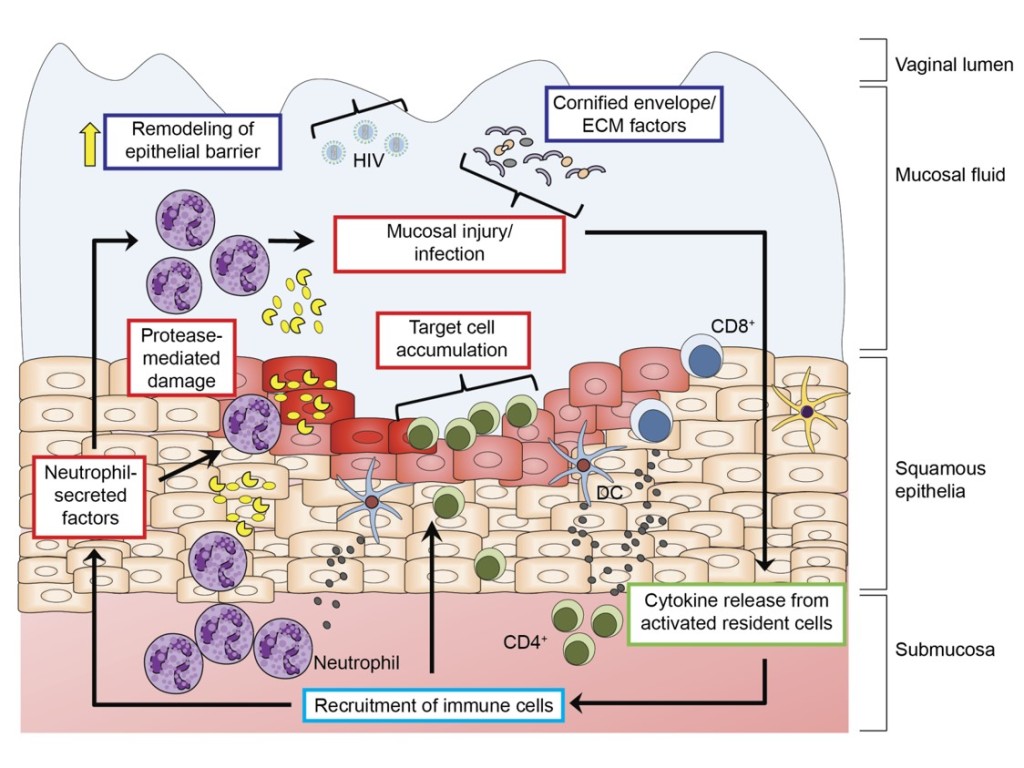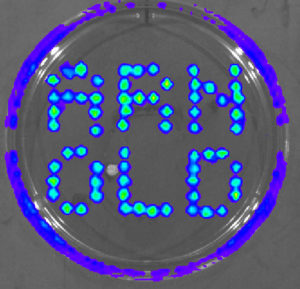Infectious Disease Susceptibility in the Female Reproductive Tract (FRT)
HIV transmission rate in women varies widely, from 1/5 to 1/2000. Previous research indicates the immune microenvironment in the female reproductive tract (a site of transmission) greatly impacts susceptibility. Together with collaborators from Canada and South Africa, we use high-throughput mass spectrometry, cytokine, and cytobrush measurements of FRT samples from high-risk women to identify complex rules for immune microenvironments that promote and prevent infection. These rules can generate new hypotheses for systems-level cellular mechanisms involved in HIV susceptibility, multivariate biomarkers for sexually transmitted infections, and aid in future design of preventative microbicides.

Role of the Immune System in Pulmonary Fibrosis, Asthma and COPD
Inflammatory lung diseases such as idiopathic pulmonary fibrosis (IPF), chronic obstructive pulmonary disorder (COPD), and asthma are responsible for a large number of hospitalizations and deaths every year, yet underlying causes are largely unknown and limited treatment options exist. The immune system is integrally involved in pathogenesis of these inflammatory pulmonary diseases, however individual immune cell targets have not proven effective for treatment. Using high throughput measurements from blood and tissue samples and various computational approaches, we aim to 1) develop systems-level understanding of the role of the immune system in these inflammatory diseases that could inform future therapeutic interventions and 2) identify quantitative relationships between immune parameters for use in development of diagnostic assays.
New Design Principles for Tissue Engineering
Tissue-engineered constructs and new nanoparticle drug delivery methods enable manipulation of tissue microenvironments and immune behavior to promote wound healing and reduce inflammation. Using high-throughput cytokine and transcription factor activity assays from in vivo and in vitro microenvironments, we apply systems biology approaches to infer molecular rules for microenvironments that reduce inflammation to promote healing with desired tissue phenotype.

